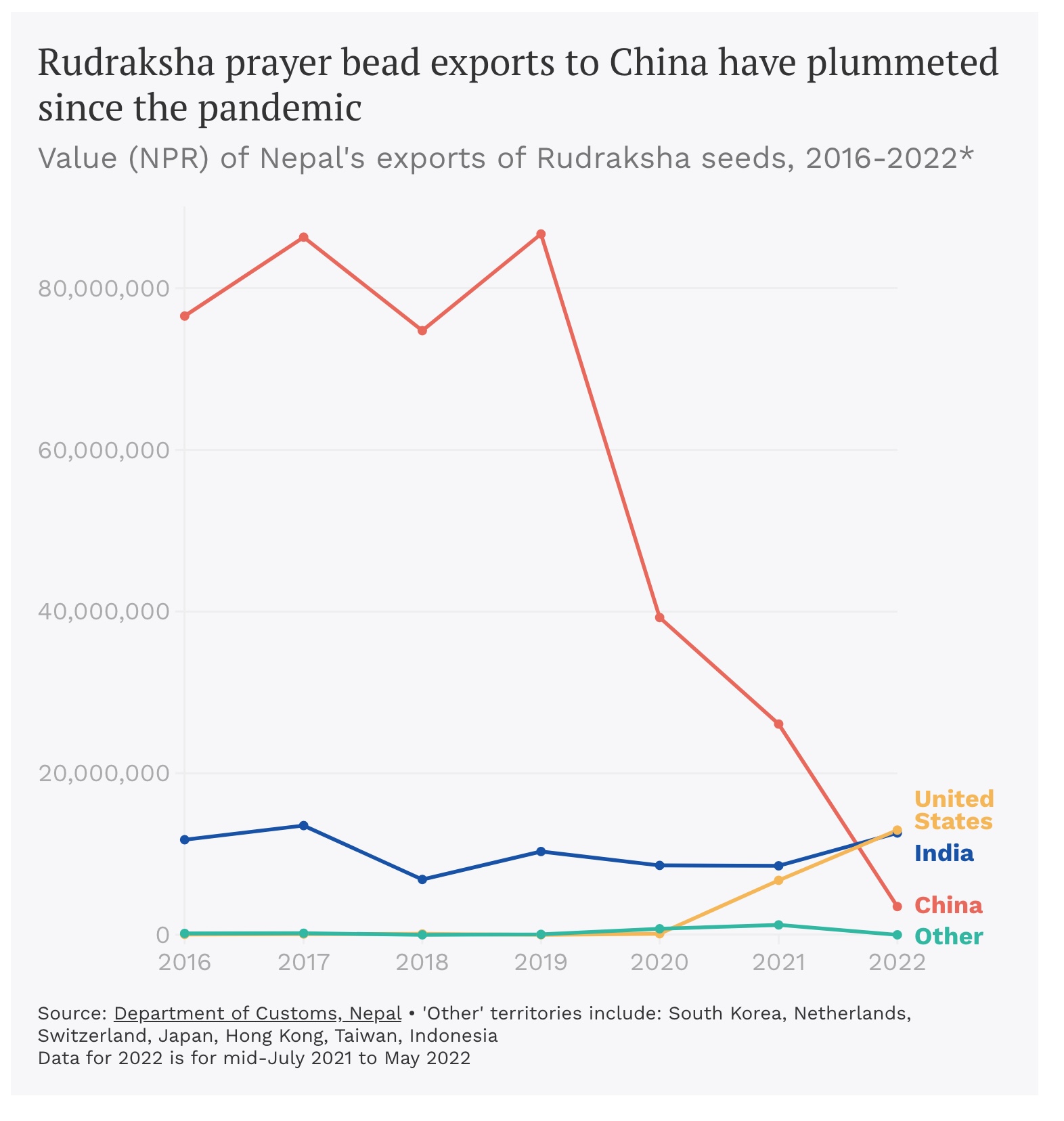NEPAL, May 27, 2022 (The Wire): Hindus believe the rudraksha, the dried seeds of the Elaeocarpus ganitrus tree that grows in the foothills of the Himalayas, are made from the tears of Lord Shiva and hold them sacred. While there is no such story in Buddhism, the depiction of the Buddha, like many sacred figures in the region, wearing rudraksha beads has made them special to Buddhists as well. Nepali traders used to largely sell the seeds to Hindus in India, but this has changed in recent years. For 27-year-old Nima Tamang, the seeds mean business with the Chinese. “I sold 22,000 lbs. of seeds to the Chinese in 2020,” he says, up from a previous yearly average of 4.4 to 6.6 lbs. earning US$28,200.
Since 2014, Nepali farmers and traders have capitalized on Chinese demand for rudraksha and bodhichitta seeds, which Buddhists use as prayer beads. The market for both products is a microcosm of the overall trade dynamics between the two countries, in which Nepal exports raw materials and has little leverage over trade mechanisms. Deepening bilateral ties in the past decade meant Chinese buyers could purchase the seeds directly from farmers and middlemen like Tamang. But Tamang’s financial success in 2020 was not to last: Chinese travel restrictions to stop the spread of Covid-19 resulted in a sharp drop in demand and prices, leading to Nepali farmers and traders suffering massive losses. According to the Department of Customs, in the 2018-19 financial year Nepal exported 980,444 lbs. of rudraksha seeds to China at an average value of $1.57 per lb. In the 2020-21 financial year, the quantity exported was 619,221 lbs. and the average value fell to $0.75 per lb. Effectively, within three years, the average price more than halved. Nepal’s lack of policy focused on such trade has meant there is not much sellers can do but wait for the Chinese buyers to return. Because Chinese buyers dominate the market, they can determine the price of rudraksha seeds, meaning sellers like Tamang have to sell at the prices they offer. .
More at source.
https://thewire.in/trade/how-rudraksha-seeds-encapsulate-nepal-trade-imbalance-china
A daily summary of world news for Hindus and non-Hindus alike

